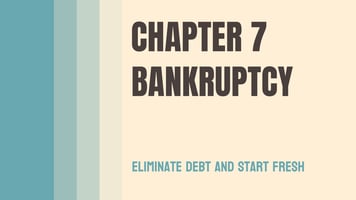New Crypto Rules, New Tax Prep Accusations
Treasury proposes new cryptocurrency reporting rules. Treasury has proposed guidelines for entities “in a position to know” the identities of the parties involved in digital asset transactions. These designated brokers would have to report information on their users’ sales and exchanges of digital assets to the IRS, similar to information returns submitted by more traditional financial firms. Under the draft rule published Friday, taxpayers would use Form 1099-DA to determine any owed taxes on their cryptocurrencies, NFTs, and stablecoins.
Warren and Porter: Big Tax Prep is sabotaging IRS free file effort. Sen. Elizabeth Warren (D-MA) and Rep. Katie Porter (D-CA) assert that big tax preparation firms are hiring former government workers to lobby against the federal government’s electronic free file effort. Warren and Porter want specific information on the money these firms have earned as members of the Free File Alliance and the number of former government workers hired by the firms in the past two years.
Could Congress crack down on tax-exempt political organizations? TPC’s Howard Gleckman reviews the efforts of the House Ways & Means Committee and Oversight Subcommittee to examine political abuses by non-profit organizations. They may present a bipartisan opportunity to fix a system that allows the use of tax-exempt dollars to fund explicitly political activities. But the effort so far focuses entirely on activities that benefit Democratic candidates, ignoring efforts that help Republican candidates.
Virginia lawmakers reject Gov. Youngkin’s tax cuts. Negotiators in the General Assembly reached a budget compromise offering one-time tax rebates to Virginians. They denied Republican Gov. Glenn Youngkin’s requested $1 billion in recurring tax cuts. Details on the compromise are scant, but the budget will tap Virginia’s $3.6 billion budget surplus for new spending and tax relief.
What does the future hold for commercial real estate and big cities’ budgets? The shift to remote work could shrink commercial property tax bases in large cities and pose continued budgeting challenges for local governments. TPC’s Thomas Brosy examines 2021 and 2022 data on commercial property taxes in 12 major cities: Phoenix, Chicago, Charlotte, San Antonio, Miami, New York, Houston, the District of Columbia, Austin, Atlanta, Dallas, and Boston. Their reliance on commercial property taxes as a share of total general revenues ranges from 36 percent (Boston) to 3 percent (Phoenix). In future years, city budget planners will have three choices: increase the tax rate on commercial properties cut spending and services, or increase tax revenue from other sources.
In the United Kingdom, a tax bill trips up a soccer team’s league standing. Southend United has total debts of £2.5 million and a tax bill of £275,000. A recent court ruling gave the club until October 4 to pay its tax bill or be disbanded. A sale to an unnamed Australian buyer should be finalized by October 1. In the meantime, the team has been docked 10 points because of the unpaid tax bill, putting it in last place in the National League, which is four leagues below England’s top competition (the Premier League). What would Ted Lasso do?
The Daily Deduction will resume its regular schedule when Congress returns on Sept. 12.
For the latest tax news, subscribe to the Tax Policy Center’s Daily Deduction. Sign up here to have it delivered to your inbox weekdays at 8:00 am (Mondays only when Congress is in recess). We welcome tips on new research or other news. Email Renu Zaretsky at [email protected].



.jpg)


